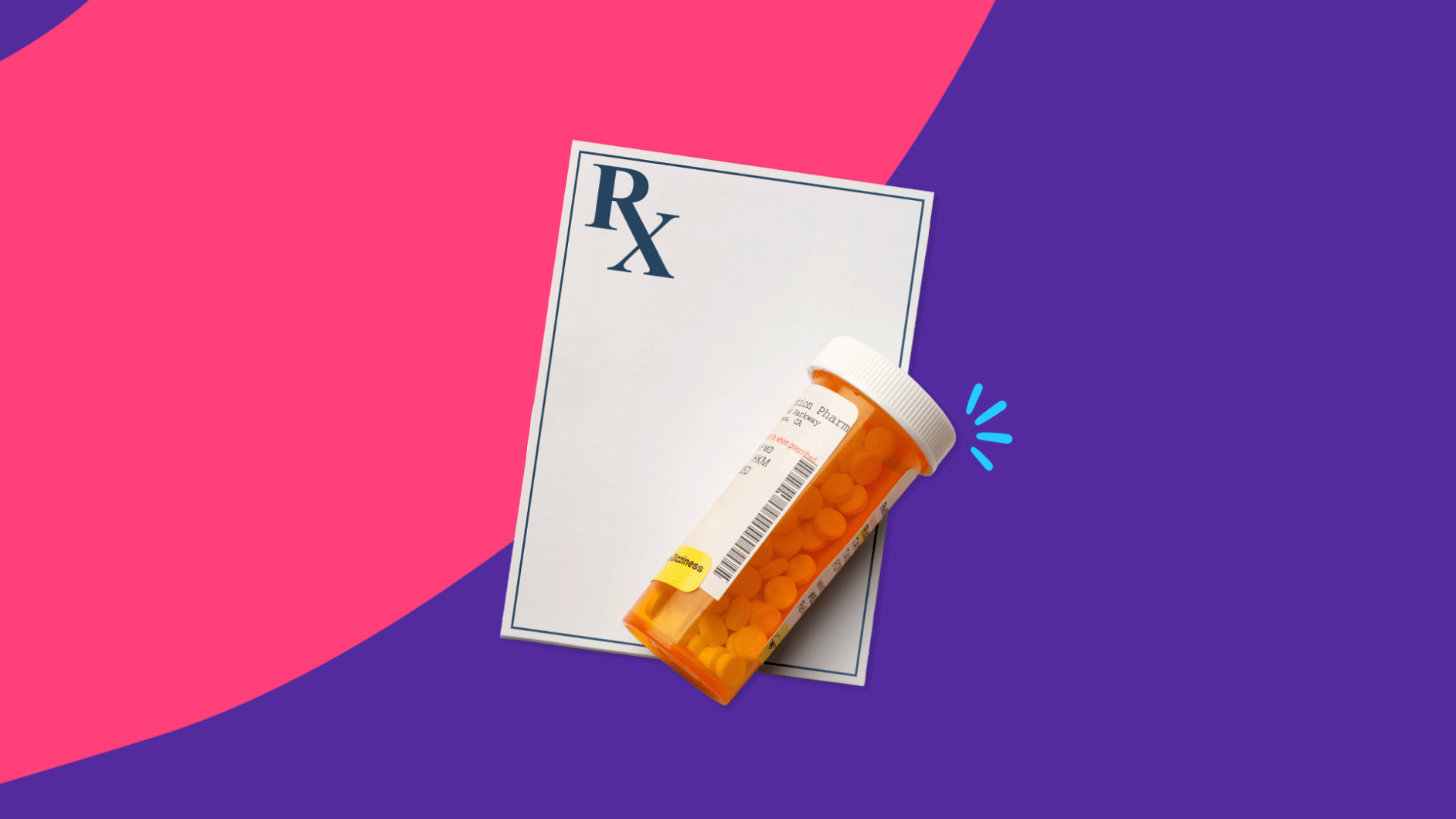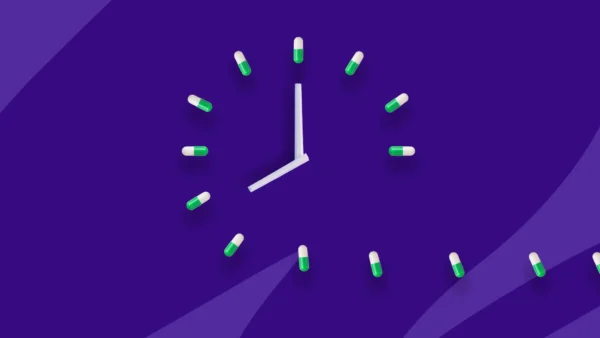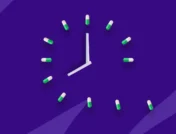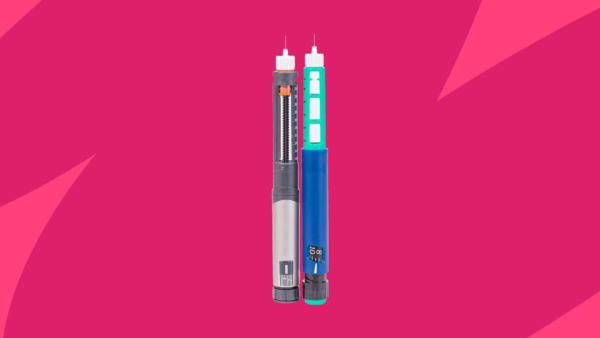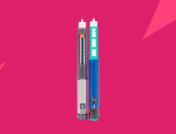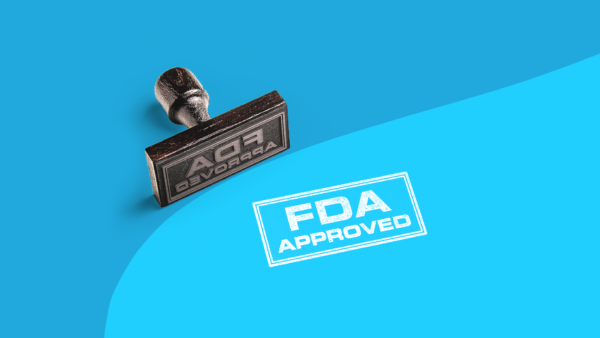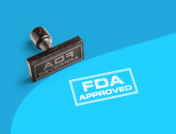Common folic acid side effects | Serious side effects | Allergic reactions | Seizures | Side effects timeline | Contraindications | Warnings | Interactions | How to avoid side effects | How to treat side effects
Folic acid (or folacin) is a synthetic form of folate, an essential nutrient also known as vitamin B-9. Folate is found in leafy green vegetables, fruits, cereals, and grain products, but some people may need to take folic acid supplements. Healthcare providers may prescribe folic acid as a tablet or injection for certain types of anemia, or for people who are malnourished, young, or pregnant.
The body needs folate to grow new cells. This includes skin, hair, and, most importantly, blood. Large red blood cells (megaloblastic anemia) are often the first serious consequence of a folic acid deficiency. Folate is also important to the development of a fetus, particularly for the nervous system. A folate deficiency early in pregnancy could cause serious birth defects such as spina bifida and anencephaly. Folic acid supplements are strongly encouraged during pregnancy. Side effects of folic acid supplements are relatively rare and mild.
Common side effects of folic acid
Side effects due to folic acid are rare. Hypersensitivity reactions may include:
- Skin rash or redness
- Itching
- Feeling bad
- Trouble breathing
Digestive system problems have also been reported in people taking high-dose folic acid. Though rare, these include:
- Appetite loss
- Nausea
- Flatulence
- Bloating
- Taste changes
Other rare adverse effects reported by people taking high-dose folic acid include:
- Irritability
- Excitement
- Overactivity
- Depression
- Sleep problems
- Confusion
- Difficulty concentrating
Serious side effects of folic acid
The most serious side effects of folic acid are allergic reactions. These include:
- Airway closure (bronchospasm)
- Anaphylaxis
Folic acid and allergic reactions
Though rare, the most common side effects are allergic reactions to folic acid or some other ingredient in the supplement. The incidence has not been determined. Some have only been reported in people taking excessively high doses of 15 mg or more, which is 35 times the recommended daily allowance.
Folic acid and seizures
There is a myth that folic acid might cause seizures. Seizures can occur rarely when large doses of folic acid are taken by people with epilepsy who are also taking primidone, phenobarbital, phenytoin, or diphenylhydantoin. In these cases, the seizures are due to a drug interaction that lowers the level of antiseizure medication in the body. The seizures are not a side effect of folic acid itself. On the contrary, people taking antiepileptic drugs frequently have low folate levels in their blood. Folic acid supplementation has been shown to improve seizure control.
How soon do folic acid side effects start?
Since many of the side effects of folic acid are allergic reactions, they typically start early in treatment or right after taking a pill or getting an injection. Digestive system problems also tend to occur within the first month of high-dose folic acid treatment. However, mood problems, depression, and confusion are usually delayed reactions.
How long do folic acid side effects last?
Hypersensitivity reactions will continue for as long as folic acid—or a particular folic acid product—is used. They may even worsen if the supplement isn’t stopped. Side effects caused by high-dose folic acid therapy should clear up when doses are returned to normal.
What are the long-term side effects of folic acid?
Prolonged use of folic acid supplements could reduce the levels of vitamin B12 (cobalamin) in the blood. In addition, prolonged folic acid use can hide the symptoms of vitamin B12 deficiency. Like folate, cobalamin is vital to the growth and reproduction of cells. A cobalamin deficiency can lead to pernicious anemia, the condition that helps healthcare professionals diagnose a B12 deficiency. But a B12 deficiency can also permanently damage nerves and the spinal cord. Prolonged use of folic acid can cover up pernicious anemia, so the damage to the nervous system caused by a B12 deficiency could continue undetected.
Folic acid contraindications
Folic acid is never given to people who are allergic to it.
Pregnancy
Folic acid is not only safe to take by pregnant women, but it is strongly recommended. Folate is so important to the neural development of a fetus, the CDC suggests that women of childbearing age get at least 400 micrograms (mcg) of folate per day either by eating fortified foods or taking folic acid supplements. A healthcare provider may suggest a higher intake of folate before conception and during pregnancy. In women who have been pregnant with a fetus that had neural tube defects, the CDC suggests 4,000 mcg (4 mg) per day for one month before anticipated conception and for three months after conception.
RELATED: Why pregnant women need to take folic acid
Breastfeeding
Folic acid is safe and recommended while breastfeeding. Recommendations may vary, but the minimum intake should be 400 mcg per day. Since folate is present in breast milk as a vital nutrient for the nursing infant, some healthcare professionals recommend a higher daily intake to make up for the folate being lost in the milk. Folate from the diet is present in human breast milk, but so is folic acid taken in supplements. Like folate, folic acid is considered nontoxic for the nursing child.
Children
It is safe to give children folic acid supplements following recommended guidelines. Prescription folic acid is approved by the U.S. Food and Drug Administration (FDA) in children as young as 1 month old.
Seniors
People older than 65 can take over-the-counter and prescription folic acid safely if they follow recommended guidelines or the instructions of a healthcare provider.
Folic acid warnings
Since folic acid is not toxic, it has only a few warnings and cautions.
Cautions
Because folic acid can mask pernicious anemia due to a vitamin B12 deficiency, healthcare providers are unlikely to prescribe folic acid supplements to people with a vitamin B12 deficiency, pernicious anemia, or undiagnosed anemia.
People who are considering over-the-counter folic acid supplements should take the recommended daily allowance of 400 mcg per day. They should also make sure to take the recommended daily allowance of vitamin B12. Anyone who suspects they have some type of anemia or vitamin deficiency should get medical advice from a healthcare professional before taking supplements.
Abuse and dependence
Folic acid does not cause physical dependence or withdrawal. Some people do take high doses of vitamins for a variety of motivations, but this is not considered drug abuse.
Overdose
Call a poison control center or get emergency medical attention if too much folic acid is taken. Except under the instructions of a healthcare professional, the maximum daily folate intake should not exceed 400 mcg.
Folic acid interactions
Although folic acid is a vitamin, it does have a few important drug interactions. Most are mild, but healthcare providers may have to adjust doses or find other treatments.
- Seizure medications: Folic acid reduces the concentrations of certain types of anticonvulsants in the body, making seizures more likely.
- Alcohol: Alcohol partly blocks the ability of the intestines to absorb folic acid. Many people who abuse alcohol have folate deficiency.
- Bile acid resins: Like alcohol, bile acid sequestrants used to treat high cholesterol reduce the body’s absorption of folic acid through the intestines.
- Methotrexate: Folic acid can reduce the effectiveness of the immune suppressant methotrexate. However, because folic acid competes with methotrexate, folic acid supplements are sometimes prescribed with methotrexate in people with rheumatoid arthritis or to prevent methotrexate side effects like mouth sores.
How to avoid folic acid side effects
Folic acid is generally taken without problems, but it pays to take a few steps to be extra safe.
1. Follow the directions
Don’t make up your own dosage to take. Take what the bottle, package insert, or healthcare provider tells you to take. It may seem smart to take “extra”—how could it hurt, right?—but it’s not. At best, the extra folic acid won’t do much good. At worst, it may cause long-term problems.
2. Don’t exceed the recommended daily allowances when taking vitamin supplements
Some people take folic acid supplements in combination with other vitamins and minerals including B-complex vitamins. Before taking these combination vitamins, research the recommended dietary allowances (RDA) of all the vitamins and minerals in the products and follow those guidelines.
3. Don’t take prescription doses of folic acid using multivitamins
A healthcare provider may suggest taking more than 400 mcg per day or prescribe a higher amount of folic acid. If that happens, don’t try to increase your folic acid intake by taking multivitamins or B-complex vitamins. Taking too many of those other vitamins or minerals could cause side effects.
4. Tell the prescriber about all medical conditions and medications
If a healthcare professional prescribes folic acid supplements, make sure to tell the prescriber about any prescription drugs, over-the-counter medications, supplements, and pre-existing medical conditions , particularly:
- Seizure disorders
- Anemia
- Alcoholism
- Liver disease
- Kidney problems
5. Consider filling a prescription
If a healthcare professional prescribes folic acid, consider filling that prescription rather than buying over-the-counter folic acid. Prescription supplements meet higher standards of quality and reliability. For all practical purposes, you don’t know what is contained in an over-the-counter supplement. If prescription folic acid is too pricey, use a SingleCare discount card or ask the prescriber to identify the most reliable over-the-counter folic acid supplements.
6. Take folic acid with food
To avoid digestive system issues, take each folic acid supplement during or after a meal.
7. Avoid drinking alcohol
Alcohol reduces the body’s ability to absorb folic acid, so it doesn’t make much sense to drink and take folic acid supplements. If taking prescription folic acid, take a break from drinking until treatment is over.
How to treat side effects of folic acid
Side effects of folic acid are rare, except in cases of people taking high doses. Unless high doses have been prescribed, don’t take more than the recommended daily allowance.
Nausea
Nausea can be handled by rest. An antihistamine or other anti-nausea drug could help. If nausea is accompanied by vomiting, drink fluids in small amounts to prevent dehydration.
Bloating
Eat small meals, exercise, and drink more fluids if experiencing bloating, abdominal distention, or excess gas when using folic acid supplements. If taking over-the-counter folic acid, consider switching to a different product.
Allergic reactions
If an allergic reaction is experienced while taking prescription or over-the-counter folic acid dietary supplements, stop taking the supplement and get medical attention. Symptoms include:
- Skin redness
- Skin rash
- Hives
- Itching
- Shortness of breath
- Swollen face, neck, mouth, or throat
Sources
- Disturbances of folic acid and homocysteine metabolism in alcohol abuse, Polski merkuriusz lekarski
- Effect of folic acid supplementation on seizure control in epileptic children receiving long-term antiepileptic therapy, Indian Journal of Pediatrics
- Folic acid, Centers for Disease Control and Prevention (CDC)
- Folic acid, Epocrates
- Folic acid and epilepsy, Epilepsy Currents
- Folic acid tablets drug summary, Prescriber’s Digital Reference
- Folic acid tablet prescribing information, U.S. National Library of Medicine



